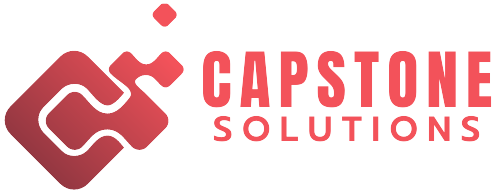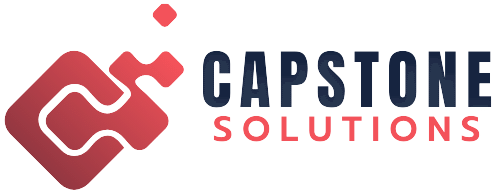Finding the right talent for your business can feel like searching for a needle in a haystack. That’s where recruitment agencies come into play, acting as matchmakers between employers and job seekers. These specialized companies not only simplify the hiring process but also enhance the chances of finding that perfect fit.
But how exactly do recruitment agencies work? What roles do they play in the employment landscape, and what benefits do they offer to both candidates and businesses? Let’s dive deeper into this fascinating world and uncover all you need to know about these essential partners in the hiring journey. Whether you’re an employer looking to fill positions or a candidate seeking your next opportunity, understanding recruitment agencies will help illuminate your path forward.
The Role of Recruitment Agencies
Recruitment agencies play a crucial role in the hiring process for both employers and job seekers. They act as intermediaries, bridging the gap between talent and opportunity. learn how to choose a recruitment agency for a job in the UAE.
For companies, simplify recruitment by sourcing candidates that fit specific criteria. This saves time and resources while ensuring access to a wider pool of talent.
Job seekers benefit too. Agencies help match their skills with suitable positions, often providing insights into industry trends and salary expectations.
Moreover, these organizations often conduct preliminary interviews. This means that only the most qualified candidates make it through to the employer’s desk.
With their expertise in various sectors, recruitment agencies enhance overall efficiency in filling roles quickly without compromising quality. Their network can open doors for candidates who might not otherwise have visibility into potential job opportunities.
Benefits of Using a Recruitment Agency
Using a recruitment agency can significantly streamline the hiring process. These agencies possess extensive networks and industry insights, allowing them to connect employers with top-tier talent quickly.
One major benefit is saving time. Instead of sifting through countless resumes, companies can delegate this task to experts who understand their specific needs. This efficiency frees up valuable resources for businesses to focus on their core operations.
Moreover, recruitment agencies often specialize in certain industries, ensuring they find candidates who not only have the right skills but also fit well within company culture. They conduct thorough screenings and interviews before presenting candidates, enhancing the quality of hires.
Additionally, using a recruitment agency can provide access to passive candidates—those not actively seeking new roles but open to opportunities. This expands the pool of potential hires and increases the chances of finding the perfect match for your team.
Types of Recruitment Agencies
Recruitment agencies come in various forms, each catering to different needs.
Generalist recruitment agencies serve a wide array of industries. They help companies fill roles across multiple sectors, making them versatile partners for businesses looking to hire.
Specialist recruitment agencies focus on specific fields or professions. Whether it’s tech, healthcare, or finance, these firms have deep expertise and connections within their niche.
Executive search firms target high-level positions. They seek out top-tier candidates for senior roles and often operate discreetly due to the sensitivity of executive hiring.
Temp agencies provide short-term staffing solutions. Businesses can quickly source workers for seasonal demands or project-based tasks without long-term commitments.
Each type plays a unique role in the hiring landscape, allowing employers to find tailored solutions that meet their specific requirements.
How to Choose the Right Recruitment Agency
Choosing the right recruitment agency is crucial. Start by identifying your industry needs. Different agencies specialize in different sectors, so ensure alignment.
Next, check their reputation. Look for reviews and testimonials from other clients to gauge their effectiveness. A strong track record can reveal a lot about their capabilities.
Consider the size of the agency as well. Larger firms might have more resources but smaller ones often provide personalized service, which can be beneficial for niche markets.
Don’t forget to assess communication styles. An effective recruitment company will listen to your needs and maintain transparent dialogue throughout the process.
Evaluate pricing structures carefully. Ensure there are no hidden fees that could affect your budget down the line. This clarity will help set expectations on both sides right from the start.
The Process of Working with a Recruitment Agency
Once you’ve chosen a recruitment agency, the journey begins with an initial consultation. This step is crucial for understanding your needs and preferences.
Next, the agency will dive into sourcing candidates. They tap into their extensive networks and databases to find individuals who match your job specifications. You can expect regular updates during this phase.
After identifying potential candidates, interviews come next. Agencies often conduct preliminary screenings to ensure that only the most suitable candidates reach you. This saves time in your hiring process.
Following that, they’ll handle reference checks and background verifications on shortlisted applicants. Their expertise ensures a thorough vetting process.
Once you select a candidate, the recruitment agency often assists with negotiations regarding salary and contract terms. Their role doesn’t end there; they may also offer onboarding support as needed.
Common Misconceptions about Recruitment Agencies
Many people have a skewed perception of recruitment agencies. Some believe they only cater to large corporations. In reality, these agencies serve businesses of all sizes, from startups to established enterprises.
Another common misconception is that using a recruitment agency costs job seekers money. Most agencies charge employers for their services, making it free for candidates to utilize their expertise.
Additionally, some think recruiters focus solely on filling positions quickly. While speed can be important, quality remains paramount. Agencies strive to match the right candidate with the right role for long-term success.
There’s also an assumption that working with a recruitment agency means limited options for candidates. On the contrary, recruiters often have access to exclusive job listings and industry insights that expand opportunities significantly.
Some people fear losing control over their job search when engaging with a recruitment agency. However, effective communication ensures candidates remain active participants throughout the process.
Conclusion
Recruitment agencies play a crucial role in connecting job seekers with employers. They streamline the hiring process, saving time and resources for both parties involved. By understanding how these agencies operate, individuals and businesses can make informed decisions that tailor to their specific needs.
With numerous benefits from expertise to access to a broader talent pool, recruitment agencies are invaluable partners in today’s competitive job market. Choosing the right agency aligns your goals with professionals who understand industry demands.
Navigating through common misconceptions helps demystify what recruitment companies truly offer. With this knowledge, candidates and employers alike can leverage the strengths of these agencies effectively.
Engaging with a recruitment agency could be one of the best steps toward achieving career or staffing success. Whether seeking top talent or landing an ideal position, these partnerships foster growth on both sides of the employment equation.





